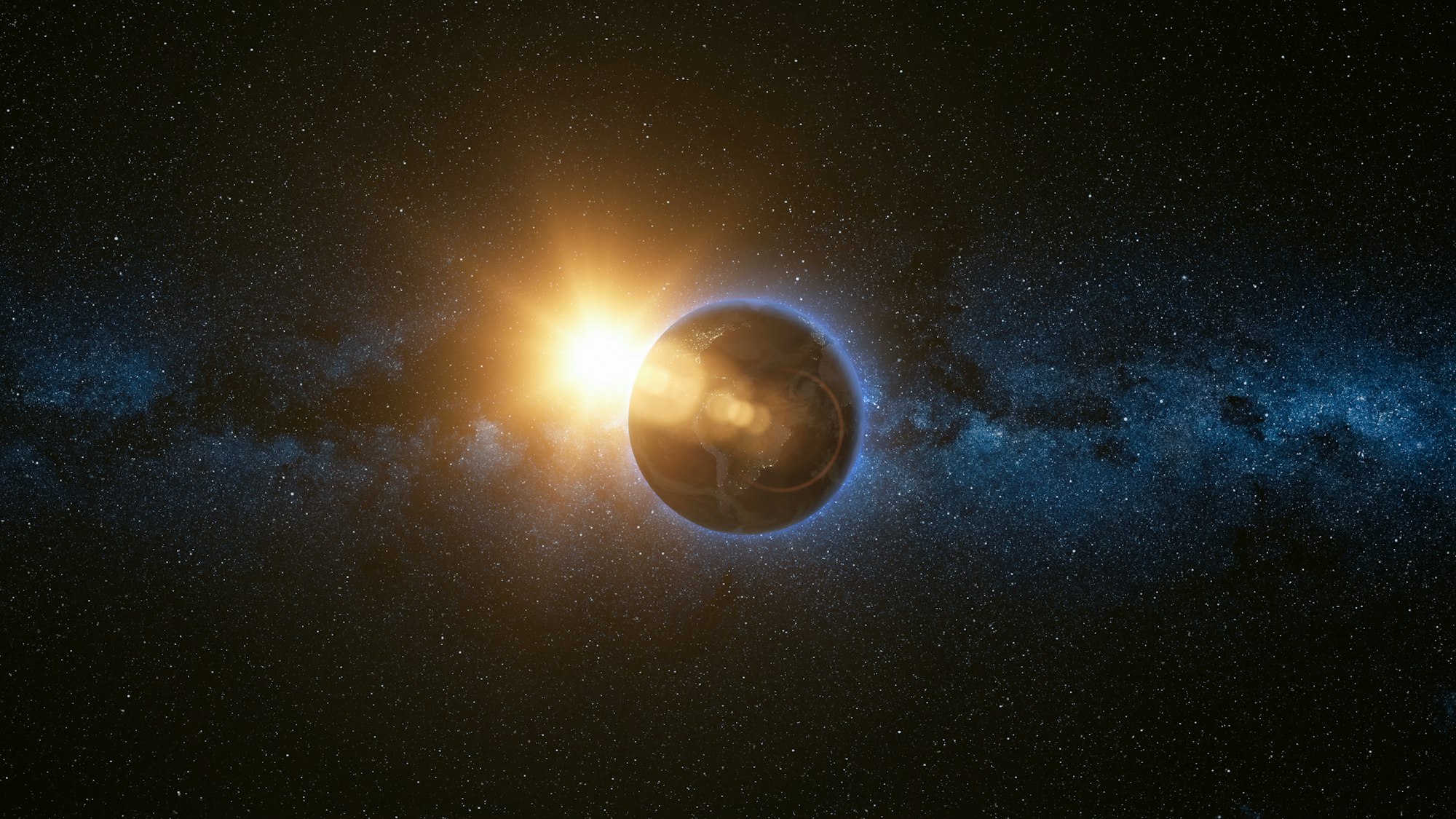
For centuries, skeptics have debated whether faith and science can coexist. Yet, for Muslims, the Qur’an and modern science are not at odds but in perfect harmony. The Qur’an, revealed over 1400 years ago, contains verses that align with discoveries made only recently by modern scientists. From embryology to cosmology, this sacred text offers insights that continue to amaze researchers today.
In this article, we’ll explore some scientific facts in the Qur’an that prove its timeless wisdom and divine origin.
One of the most remarkable scientific revelations in the Qur’an is the concept of an expanding universe—a discovery credited to astronomer Edwin Hubble in the 20th century.
“And the heaven We constructed with strength, and indeed, We are [its] expander.”
(Surah Adh-Dhariyat 51:47)
This verse directly correlates with modern physics, which confirms that galaxies are moving away from each other, proving that the universe is continuously expanding. This was only discovered in the 1920s, yet the Qur’an mentioned it long before telescopes existed.
Scientists now know that the universe started from a single point (the Big Bang) and has been expanding ever since. This idea forms the foundation of modern cosmology and further solidifies the Qur’an’s alignment with scientific facts.
The Qur’an provides a detailed description of human embryonic development, which wasn’t fully understood until the advent of modern microscopes.
“We created man from an extract of clay. Then We made him a drop in a place of settlement, firmly fixed. Then We made the drop into a clinging clot, and We made the clot into a lump, and We made the lump bones, and We covered the bones with flesh; then We developed him into another creation. So blessed is Allah, the best of creators.”
(Surah Al-Mu’minun 23:12-14)
This verse accurately describes the different stages of human development inside the womb—something that wasn’t known until the 20th century.
Dr. Keith L. Moore, a world-renowned embryologist, stated that these descriptions match modern findings on fetal development. Scientists now confirm that the human embryo initially resembles a clinging clot (alaqah) before developing bones and flesh—just as described in the Qur’an.
The Earth’s atmosphere plays a crucial role in protecting life from harmful radiation, meteoroids, and maintaining a livable temperature. The Qur’an highlighted this protective nature long before atmospheric science was developed.
“And We made the sky a protected ceiling, but they, from its signs, are turning away.”
(Surah Al-Anbiya 21:32)
Without these protective layers, life on Earth would not be possible.
The Qur’an describes mountains as pegs or stakes that help stabilize the Earth, a fact that aligns with modern geological research.
“And We placed within the earth firmly set mountains, lest it should shift with them.”
(Surah Al-Anbiya 21:31)
Geologists confirm that mountains have deep roots extending beneath the Earth’s crust, much like pegs. These roots help balance the Earth’s crust, preventing extreme movements of tectonic plates, which could lead to catastrophic earthquakes.
Dr. Frank Press, a prominent geologist, even described mountains as stabilizers in his book Earth.
The uniqueness of fingerprints was discovered in the 19th century and is now a crucial tool in forensic science. However, the Qur’an mentioned this intricate detail long before science recognized its importance.
“Does man think that We will not assemble his bones? Yes. [We are] Able [even] to proportion his fingertips.”
(Surah Al-Qiyamah 75:3-4)
This verse emphasizes that Allah can reconstruct even the smallest details of the human body, including fingerprints.
The Qur’an’s mention of this unique human trait long before it was discovered highlights its divine knowledge.

The Qur’an describes a barrier between different seas, preventing them from mixing completely.
“He has set free the two seas meeting together. Between them is a barrier which they do not transgress.”
(Surah Ar-Rahman 55:19-20)
Oceanographers have discovered that when two different seas meet, there is a barrier between them due to differences in temperature, salinity, and density. This phenomenon, called halocline or oceanic mixing, was only understood in recent centuries.
The water cycle—how water evaporates, forms clouds, and returns as rain—is now well-documented in science. However, the Qur’an accurately described it over a thousand years ago.
“And We sent down from the sky rain in due measure and settled it in the earth. And indeed, We are able to take it away.”
(Surah Al-Mu’minun 23:18)
Scientists now understand how evaporation, condensation, and precipitation work to sustain life on Earth. The Qur’an mentioned these processes before meteorologists even existed.
The scientific miracles in the Qur’an are just one of the many proofs of its divine origin. These facts, discovered centuries later by scientists, reinforce the Qur’a
n’s authenticity and wisdom. For Muslims, this is a sign that faith and science are not opposing forces but complementary truths.
So the next time someone questions whether Islam is compatible with science, remind them that the Qur’an has been revealing scientific truths long before modern researchers discovered them.
Did any of these scientific facts surprise you? Share your thoughts in the comments!